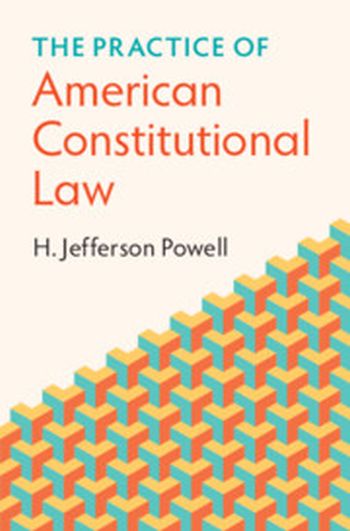
Americans often think about constitutional law in terms of high-profile decisions by the Supreme Court – decisions that divide the justices by ideology, not law. This focus often leads to the erroneous conclusion that constitutional law arguments are, and can only be, political in substance. In The Practice of American Constitutional Law, H. Jefferson Powell demonstrates that there is a longstanding, shared practice of constructing and evaluating constitutional law claims that transcends current political disagreements. Powell describes how lawyers and judges identify constitutional problems by using a specifiable method of inquiry that enables them to agree on what the questions are, and thus what any plausible answer must address, even when disagreement over the most persuasive answers remains. Rather than being simply politics by other means, constitutional law is the successful practice of giving substance to the Constitution as supreme law.